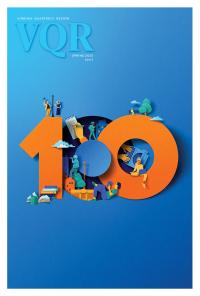
Hot-or-Not Author Syndrome
When Marisha Pessl’s debut novel, Special Topics in Calamity Physics, was released in 2006, a flurry of articles and blog posts appeared grousing that Pessl was awarded a lucrative book contract for her good looks or that the 28-year-old author’s book jacket photo was treated as more important than the work itself.

Marisha Pessl’s author photo.
The irony, of course, is that these pieces, by their very existence, added to a debate that didn’t have to be. If all involved ignored the author’s looks as incidental—as her publisher surely did, being that no one publishes a book of literary fiction because of how its author looks in a single photograph—then there would be no issue, and the book could remain center stage. Instead, there was a faux controversy and a fair amount of righteous indignation, prolonged by coverage pieces like those by the New York Times and the AP, respectively titled “With Marisha Pessl, You Can’t Judge a Book by the Photo on the Cover” and “Don’t hate Pessl because she’s . . .”
(The actual book received generally positive reviews, occasionally bordering on hyperbolic, while critics called it excessively stylized and bemoaned the arrival of yet another highly precocious adolescent protagonist. It was a bestseller, and reportedly the writing team behind the well-received “Half Nelson” is working on the film adaptation.)
It all seems like a waste of time, yet it’s certainly happened many times before and since. For whichever reasons, honest or prurient, some bookish types can’t let the issue go. Somehow, calling Taylor Antrim “painfully—ridiculously—attractive” and “downright Gatsby-like” enhances a profile piece, telling us more about the writer and his relationship to his work. Unsurprisingly, these descriptions appeared in a piece entitled “Wonder Boy ‘07”—for young, debut novelists, the hype machine rolls on.
At the risk of rehashing a tired issue, I feel compelled to write this after reading Janet Maslin’s recent review in the New York Times of Miriam Gershow’s The Local News, also a first novel about the traumatic high school years of a highly precocious teenage girl. Here Maslin wades into the gossipy territory of author beauty, in the process becoming guilty of violating one of Updike’s valuable rules of reviewing: review the book, not the reputation. More specifically, she tries to use vague information about Gershow’s life to establish a connection between the writer and the text. Maslin writes:
Ms. Gershow has been a teacher at the University of Oregon, where some students’ online ratings of her sound like a continuation of Lydia’s high school nightmare. Being regarded as neither popular nor hot seems to be territory that Ms. Gershow knows well, maybe in the classroom and certainly on the pages of her unusually credible and precise novel. But these real-life disadvantages become assets in giving “The Local News” its strong verisimilitude, even in its graceless touches.
When I first read this passage, I had to stop and reread it several times to see if Maslin really wrote what I thought she did. Shockingly, Maslin is saying that because college students’ online ratings of Gershow judge her unpopular and “not hot,” that information is somehow both relevant for a book review and credible. For her research, Maslin presumably turned to Miriam Gershow’s profile on RateMyProfessors.com, a service which allows students to rate professors in several categories, all based on standard academic metrics—difficulty, teaching ability, helpfulness, etc.—with the addition of one more: “appearance,” employing a simple “hot or not” rating that the site explains is done “just for fun.”
This is a lazy and shallow tactic for a reviewer to take. She essentially says that the author must know how to write about an unattractive loser because some college kids think she is. As someone who was in college a few years ago, let me say: don’t trust my erstwhile peers, who provide such illuminating commentary on Gershow as:
I NEVER GIVE AN ADVICE BEFORE BUT THIS ONE IS THE WORST TEACHER IN THE UNIVERSE. IF YOU REALLY VALUE YOUR LIFE THAN DO NOT THINK ABOUT TAKING HER CLASSES. A SUICIDE DECISION. HORRIBLE HORRIBLE HORRIBLE!
She is funny at all. Its not easy to get an A in her class. I don’t really like her!
Miriam was nice. Very helpful during office hours. She made sure everybody participated in class. But…her way of grading was dumb. Nice person but not good in grading. I couldn’t believe I got a C for missing 5 lines to complete my whole paper, even though I had a good argument. >:-(
(sic) all around.
Maslin might have been trying to show some sympathy for Gershow and her poor student reviews (though there are some positive ones as well; her overall rating is 3.0 on a five-point scale, which is to say average), but she ended up producing a backhanded compliment of the worst order in an overall laudatory review. It’s always a dangerous game to try to imbue a text with additional meaning by examining a writer’s biography, which in this case is rather sparse. Gershow might have succeeded in writing a compelling protagonist because she knows what it’s like to be disliked in a setting far different from that of her novel, or maybe she did such a good job because she, like, you know, has an imagination.
